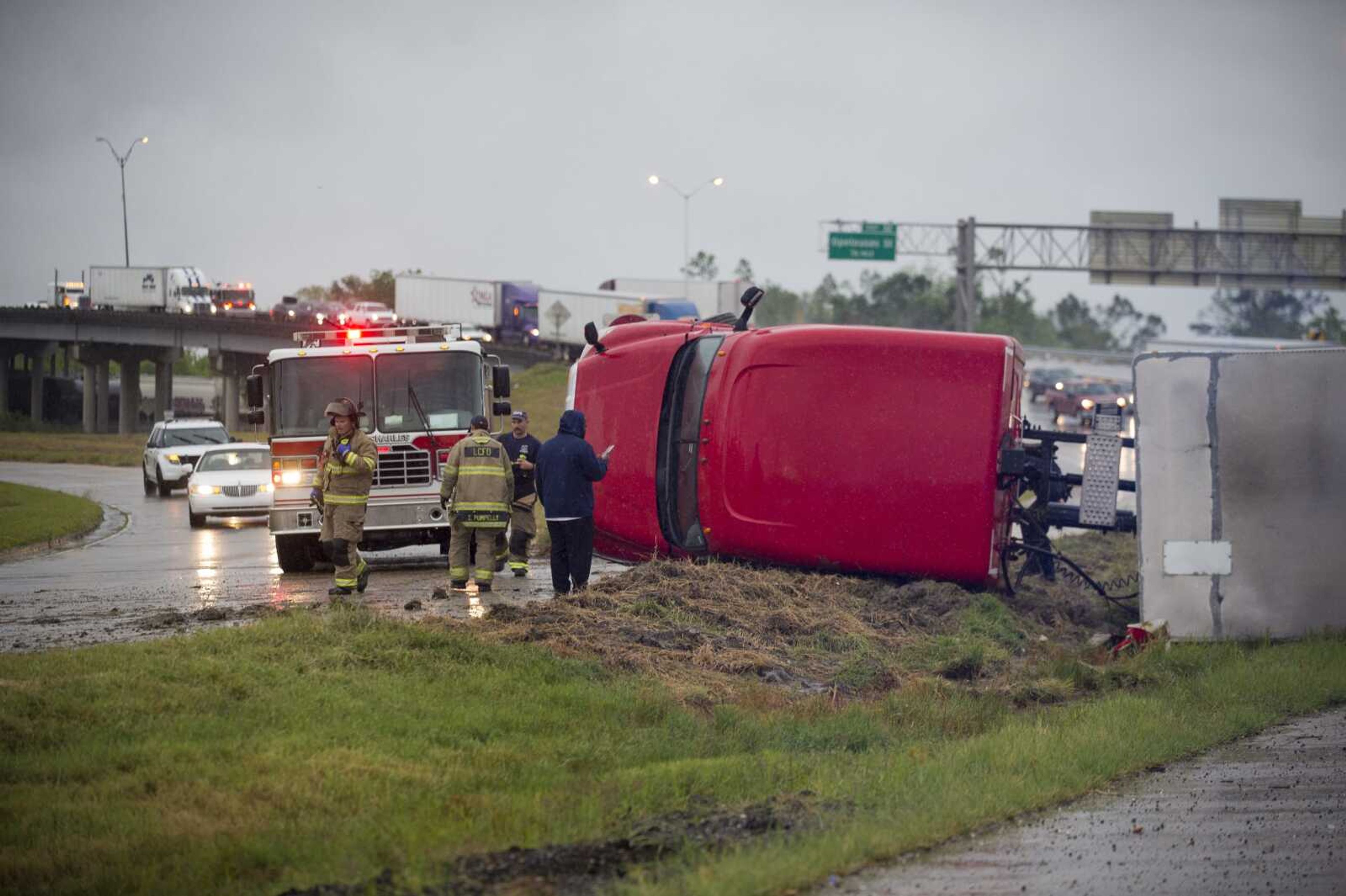Louisiana braces to relive a nightmare with Hurricane Delta
LAKE CHARLES, La.-- Residents in south Louisiana braced to relive a nightmare Friday as bands of rain from approaching Hurricane Delta began soaking the same area of the state that was badly battered by a deadly hurricane six weeks ago. The streets were largely vacant in the city of Lake Charles, where Hurricane Laura destroyed buildings in late August. ...
LAKE CHARLES, La.-- Residents in south Louisiana braced to relive a nightmare Friday as bands of rain from approaching Hurricane Delta began soaking the same area of the state that was badly battered by a deadly hurricane six weeks ago.
The streets were largely vacant in the city of Lake Charles, where Hurricane Laura destroyed buildings in late August. Blue-tarped roofs stretched as far as the eye could see, and rain pooled around piles of moldy mattresses, sawed-up trees and other leftover debris that officials worried could cause more damage or deaths when Delta hits.
The first tropical storm force winds brushed the Louisiana coast Friday morning. At midday, the storm was 80 miles south-southwest of the coastal community of Cameron. Blustery winds ahead of the storm's arrival began picking up at midday along with the rain.
"We just got lights back on like two weeks ago and then evacuating again? It's extremely hard," said Roslyn Kennedy. She was among a handful of evacuees at the Burton Coliseum in Lake Charles, waiting to be transported, again, to safer destinations.
Forecasters said the 25th named storm of an unprecedented Atlantic hurricane season would likely crash ashore Friday evening somewhere on southwest Louisiana's coast. Hurricane warnings stretched from High Island, Texas, to Morgan City, Louisiana.
The question was how powerful Delta would be by the time it makes landfall. In its latest update Friday afternoon, the National Hurricane Center said Delta had continued to weaken and become a strong Category 2 storm with winds of 110 mph. Earlier Friday, it had sustained winds of 115 mph.
Forecasters have said they expect the weakening trend to continue until Delta makes landfall along the U.S. Gulf Coast, but they cautioned that it remained a dangerous storm.
Some residents were staying put, despite the danger. Ernest Jack remained in his Lake Charles house, one of those with a blue-tarped roof. He had gathered food, plenty of water and had covered his windows to protect against flying debris during Delta.
"I just didn't want to leave. I stayed during Hurricane Laura, too. I just put it in the Lord's hands," Jack said, pointing skyward.
Delta, the latest in a recent flurry of rapidly intensifying Atlantic hurricanes that scientists largely blame on global warming, appeared destined to set records at landfall. It would be the 10th named storm to hit the continental United States this year, surpassing the number that hit in 1916, according to Colorado State University researcher Phil Klotzbach.
Delta would also be the first Greek-alphabet-named hurricane to hit the continental U.S. And as the fourth hurricane or tropical storm to hit Louisiana in a year, it would tie a 2002 record, Klotzbach said.
Concern wasn't limited to the Lake Charles and Cameron Parish areas, where Laura came ashore in late August. Further east, in Acadiana region towns like New Iberia and Abbeville, people took the storm seriously.
Delta's storm surge was predicted to reach anywhere from 2 feet to as high as 11 feet along the Louisiana coast. Laura pushed a storm surge that reached 12 feet, Gov. John Bel Edwards said Thursday.
New Orleans, to the east, was expected to escape Delta's worst impacts. But tropical storm-force winds were still likely in the city on Friday, and local officials said they were preparing for the possibility of tornadoes.
And in Mississippi, Gov. Tate Reeves declared a state of emergency, as did his counterpart Edwards in Louisiana. Forecasters said southern Mississippi could see heavy rain and flash flooding.
Connect with the Southeast Missourian Newsroom:
For corrections to this story or other insights for the editor, click here. To submit a letter to the editor, click here. To learn about the Southeast Missourian’s AI Policy, click here.









